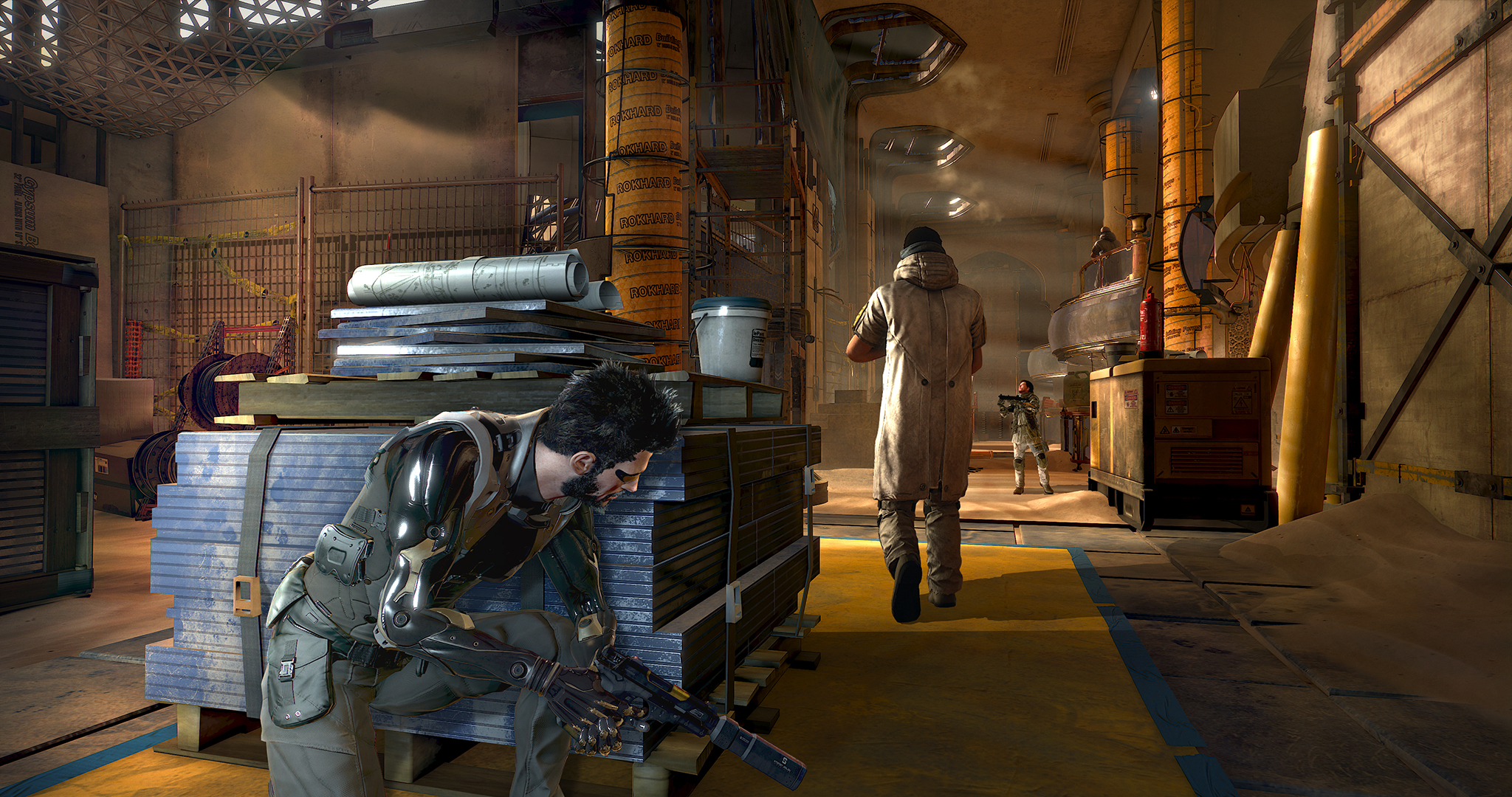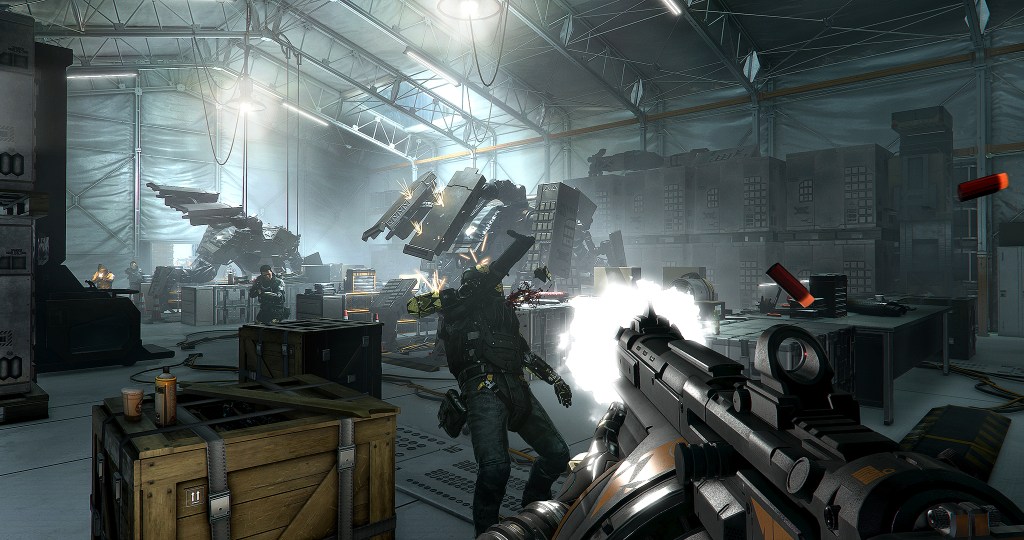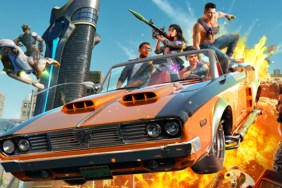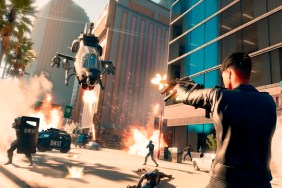The first few hours of a world in chaos.
As a series known for its open-ended and diverse storytelling, the Deus Ex franchise knows all too well that it's hard to follow up on a much loved and provocative title. After the events of Human Revolution, things seem to be up in the air for how humanity would proceed after such catastrophic events. But the developers found there was much more story to tell by focusing on the challenges and tragedies of the human condition in a transhumanistic world.
With the game only a month away from release, we're still largely in the dark when it comes to how things will play out in Deus Ex: Mankind Divided, which is definitely for the best of course. Last month, Jeb got the chance to play a bit of the game, and the general buzz from those that came away were quite positive. This definitely made me more excited to try and give it a shot.
At a special event hosted by Square Enix last week, we got the chance to chat with the developers at Eidos Montreal about the upcoming launch of their title, and how it ended being surprisingly relevant when it comes to the state of things in the world.
Taking place two years after the events of Human Revolution, Adam Jensen has since joined Interpol's counter-terrorism agency known as Task Force 29 to take down augmented terror cells, while seeking to find more information about the Illuminati. After his fateful decision to reveal the truth of what happened at Panchaea and what caused augmented humans worldwide to go berserk, the world is now in a state of unrest on what to do. Now in "Mechanical Apartheid," augmented humans struggle to live a normal life while being feared and kept under constant watch. But now, unknown forces seek to propel the world into further chaos and create a greater threat for all of mankind.
The developers for Mankind Divided, as a direct sequel to the last game, were in an unusually tough spot of figuring out how best to proceed. Since Human Revolution had four unique endings (with several variations to them), they'd essentially had to canonize one of them to serve as the basis for the sequel. Though it was admirable for Jensen to tell the truth about what happened in the final moments of the last game, his choice ultimately leads humanity down a dark path.
Gameplay Director Patrick Fortier spoke about how Eidos Montreal sought to tell a darker story with Mankind Divided, and how all the endings in the original game are still valid.
"When we finished the original game, there wasn't necessarily a lot of thought on what to do with the sequel," said Fortier while discussing their focus on storytelling. "When those discussions did come up, the team didn't want to do HR again; if we were gonna start thinking about Adam Jensen, was there more to tell with him and where we are when it comes to the topics of transhumanism."
"We actually felt that all of those endings [in Human Revolution] actually happened," the gameplay director stated. "If you chose to blow the whistle on it all, that doesn't mean people will listen, especially in the midst of an event like that. Things get lost in translation, people come up with their own theories and motivations."

In case you couldn't tell, the world is in a dark place, and Adam Jensen is currently riding the fine line between authority figure and social pariah. With augmented humans being outcast by society and continually profiled by local police, the future of human augmentation seems bleak at best. It's refreshing to see games such as this, where your choices and decisions matter, and which tackle issues such as injustice and prejudice.
Much like the last game, the characters in the world deal with augmentation as a real and heavily debated issue that calls for accountability and oversight. Of course, I'd be remiss not to mention that there are many parallels to real-world issues that are happening in the world today. Though the developers claim that they chose to focus more on the issues and not necessarily be political about such topics, they do acknowledge that the parallels are there, and that history and current events happen in cycles.
"We wanted to make the story as realistic as possible—if you look at the patterns in history there are very similar patterns in terms of segregation, discrimination, and just finding any reason to isolate and take control other people. It's the same story told over and over again. As human beings, we tend to find any reason—whether that's race, gender, religion—to discriminate against others. So it just makes sense that augmentations would lead to that."
To say that Mankind Divided is dark would be putting it lightly. In the opening hours, the general story does a lot to get players caught up to speed, and things are going well at all. With the 'Mechanical Apartheid' in effect, characters with augmentations are under constant scrutiny and their rights and dignity are all but taken from them.
During a section of my playthrough in the Prague setting, Jensen has to travel to his contact for new augs in a heavily fortified area of the city. After a recent bombing killed many civilians, the city's police and citizens are on edge, which makes getting around difficult. In keeping with the series' non-linear and open-ended design, there are multiple ways to accomplish this goal. Keep in mind, this is still the early part of the game and you've still got more abilities to unlock, but it not only shows the open-endedness at play, but also the moral dilemma Jensen is constantly in.
If you've got the right skills available, you can sneak around the guards and make your way through buildings and over the rooftops to get to your destination. Or if you're looking to be more diplomatic, you can talk and bribe your way through. But if you feel you want to be more gung-ho, you can absolutely go in guns blazing… though the latter will likely play right into the fear of augs and essentially prove society at large right. If you do choose to go the non-lethal route, you'll be pleased to know that the entire game can be completed without killing a single character, including bosses.
Every choice you make over the course of the game matters. The culmination to the game's finale will feel far more organic compared to its predecessor's. Instead of focusing on major junction points, your choices and who lives or dies creates echoes throughout the world, leading to confrontations or new alliances. And no, you won't be able to reload your save during the final checkpoint to see all the endings this time. You very much have to deal with the hand you're dealt.
Even during the opening hours, things felt far more diplomatic and social compared to the last game. I felt constantly aware of the current climate, and the need to overcome the prejudice that augmented humans face. Fortier elaborated further by saying that his hopes for Mankind Divided can lead to discussions about these topics that will linger with players long after they finish.
"We didn't necessarily go out to shine a light on certain things happening now; it was important to build the world we set out to make. With that said, it is disturbing to see the things we've seen in the last few years and how close the parallels are. I can definitely see why people would see how close things are. Hopefully a game like this can help the creative and critical mind to ask questions, even after you turn off the game. If anything like that happens, then we were successful in what we sought to do."
I was a big admirer of the original game, and it was easily among my top picks of the year back in 2011. So it's very refreshing to see the developers focused more on expanding and accommodating multiple playstyles. Mankind Divided is a very dark game, and that's what makes it so intriguing to me. I was very impressed with what I played, and it looks as though they've got another title that will continue to live up to the series' legacy. With Mankind Divided launching next month on August 23, 2016, fans of Human Revolution should expect a darker and more socially relevant storyline to dive into.










